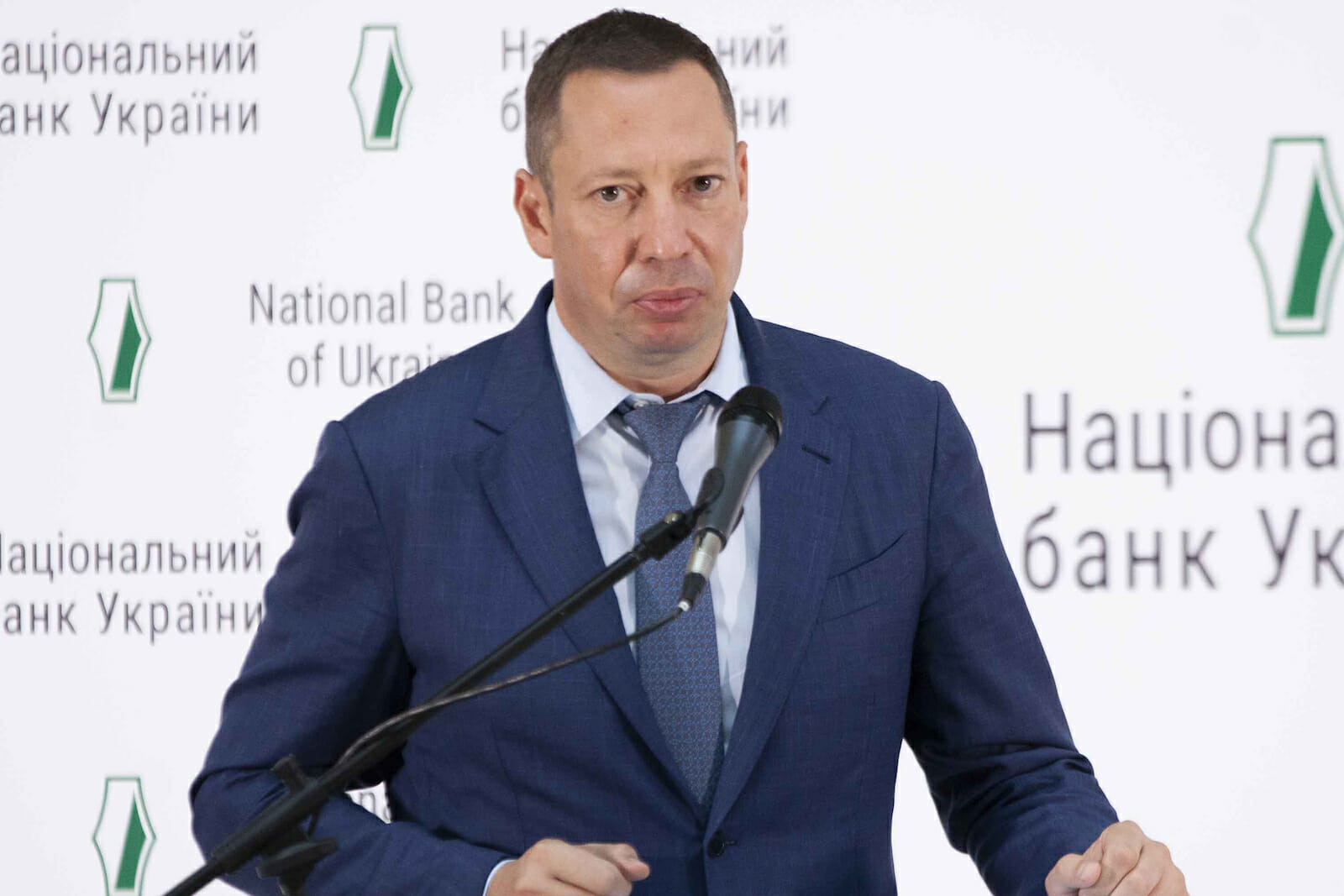
Ukraine’s Top Banker Aims to Steer Nation from Turbulence of 2020
The coronavirus pandemic has posed an unprecedented crisis for Ukraine’s economy and the global economy as a whole.
When Kyrylo Shevchenko took over as Governor of the National Bank of Ukraine (NBU) in July, support of the banking sector was his top priority, not just to regain confidence in the country’s central bank, but to also help Ukraine through the coronavirus storm.
As 2020 nears its end, he says he is “proud” of the work achieved to date.
“But,” he also cautions, “there is much more to be done, and 2021 will be a year in which our decisions will continue to power on.”
Shevchenko has pledged to maintain the independence of the national bank and a person close to Ukraine President Volodymyr Zelensky said, “Shevchenko is a respected and capable banker who during his tenure as head of Ukrgasbank was well regarded by international financial institutions and Ukrainian companies alike.”
In an exclusive interview, Shevchenko says that “no bank” has been left unaffected by the crisis. Between January to October 2020, NBU’s profits sat at €1.17 billion, down 23% from last year’s levels. This is primarily due to banks, understandably, increasing their provisions from circa €246 million to €216 million.
Nonetheless, net interest income has risen by 5.1% year-on-year to €1.8 billion, despite lower interest rates. In addition, net commission income is up 1.8% year-on-year to €1.07 billion, although demand for banking services temporarily fell in the spring.
Ukrainian banks, he notes, have also maintained a sufficient level of capitalization, with the sector’s regulatory capital adequacy ratio still sitting far above the required 10% minimum at 21.76%.
Shevchenko says regulatory capital has increased by 20% since the year started, while the adequacy ratio has increased. As a result of this growth, banks in Ukraine have retained their ability to cover losses and continue to lend to households, SMEs, and large businesses despite the adverse effects of coronavirus.
In the third quarter of this year, restrictions began to ease across Ukraine. Consequently, the lending market returned too, allowing the banking sector to set the country’s economy on the road to recovery, he says.
In the first 10 months of 2020, the corporate and retail portfolios of Ukraine’s banks also increased by 3% and 2.7%, respectively. The loan portfolios of electricity suppliers, carriers, and trading companies saw significant growth, alongside increases in loan demand from SMEs, who have prioritized restructuring their debts as well as meeting working capital and investment needs.
The retail and real estate markets in Ukraine have also witnessed positive growth since July, with the former up almost 4% in the third quarter. Real estate, meanwhile, has experienced even faster growth, up 6.9% for the quarter. This was driven, primarily and unsurprisingly, by pent-up demand for real estate, coupled with added incentive programmes from the government and the steps Shevchenko has taken at NBU to cut interest rates.
Shevchenko says, “The positive growth we have seen in the lending market has been matched with the efforts we have made regarding interest rates.”
At present, interest rates are still trending lower as a result of subdued inflation and key cuts to NBU’s policy rate.
The governor adds, “Our actions have brought interest rates to an all-time low of 6%, meaning responsible borrowers can take out affordable, less than 8.5% per annum hryvnia loans to finance short-term needs – of particular importance in the wake of the pandemic.”
Shevchenko says the changes that have been made at NBU bring an “added personal sense of achievement” since loans came with an interest rate above 18% just under a year ago.
He goes on, “Yet, this is by no means a valid excuse to take our foot off of the gas; there is ample room to lower these rates further.”
Since the beginning of 2020, banks have cut their rates on hryvnia deposits from over 15% per annum to 8.6% per annum, whilst rates on FX deposits are at an all-time low.
Perhaps one of the most important trends we have seen is the decline in NPLs.
In 2017, Ukraine led the world in non-performing loans (NPLs), accounting for 58% of all loans made by Ukrainian banks.
“Since the beginning of my role as Governor in July, NBU’s efforts to reduce this unwanted accolade have been nothing short of remarkable.”
Shevchenko, who has close connections with multilateral institutions and has worked closely with the World Bank, says the NBU has “actively worked” to free banks from NPLs with the NPL ratio declining by 2.2 percentage points to 45.6% of the loan portfolio in Q3.
“This decline continued into October where we achieved a further decrease in the NPL ratio, reaching 43.3% of the loan portfolio as of 1 November.”
Shevchenko, 47, born in Russia, is a career banker who worked briefly in a mine, had been tipped by local media to become the next governor since February.
Shevchenko emphasised continuity in remarks at his confirmation hearing in July. His appointment was supported by 332 lawmakers, easily clearing the 226 votes needed.
He said, “Praise must also be given to state-owned banks, who did a tremendous amount of work between June and November by writing off €3.26 billion in fully provisioned loans. This enabled those banks to bring their NPL ratios below 60% for the first time in several years.”
Additionally, improvements have been reported in bank deposits. Hryvnia retail deposits have risen by 29% year-on-year in 2020, while FX retail deposits are up 5.5%. Year-on-year, hryvnia corporate deposits have increased by 38% and FX corporate deposits have increased by 24%.
Shevchenko concludes, “2020 has indeed been a difficult year for the world. But the work that has been undertaken at NBU since July indicates that confidence in Ukraine’s banking system is high and continues to grow.”
Looking ahead, the central bank governor said, “As Governor, my priority for 2021 will be ensuring that reform and recovery will continue to be at the heart of NBU’s activities.”
